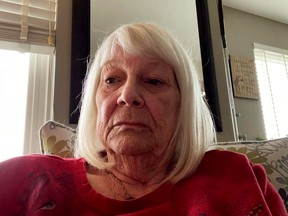B.C. Minister of Housing Ravi Kahlon in Coquitlam, B.C., on May 16, 2023. PHOTO BY DARRYL DYCK /THE CANADIAN PRESS
Katie DeRosa Published Apr 09, 2024
B.C. seniors who qualify for the government’s rental assistance program will get a one-time top up of $430 plus an additional $110 a month in subsidies
Amid concerns from seniors that the Shelter Aid for Elderly Renters (SAFER) program hasn’t kept up with rising rents, B.C. is boosting the monthly rent supplement and allowing more seniors to qualify.
However, one rental advocate said without meaningful action by the B.C. NDP to rein in out of control rent, the subsidies amount to a “game of catch-up that the government loses every time.”
- Surrey rejects B.C. government’s ‘final’ $250 million offer for new police force
- West Vancouver’s landmark Sky House is for sale. See the photos and views
- Opinion: B.C. maintains high tax rates despite prosperity gap
- Two British Columbians claim addiction treatment drug wrecked their teeth
- Vaughn Palmer: B.C. finance minister makes light of credit downgrade
Seniors who qualify for SAFER will get a one-time top up of $430 plus an additional $110 a month in rental subsidies, Housing Minister Ravi Kahlon announced Tuesday morning. The increased monthly payment means the average subsidy for existing SAFER clients will be $310 a month, Kahlon said.
“This will take us a step forward to addressing the critical challenge of affordability that many seniors are facing,” he said during a news conference at the legislature.
Seniors already enrolled in the program don’t have to apply for the one-time top up, which will be automatically applied to their April payment.
More seniors will qualify for the program since the income threshold is being raised from $33,000 to $37,240. The government estimates an additional 4,800 seniors will qualify for the program.
“We don’t think this goes far enough,” said B.C. Green party Leader Sonia Furstenau, who is calling on the government to increase the threshold to $45,000 for an individual and $50,000 for a couple.
Furstenau slammed the government for falling back on one-time payments instead of putting in measures like vacancy control that would tie rental caps to the unit instead of the tenant to prevent landlords from hiking the rent after someone moves out. Kahlon has repeatedly ruled out such a move.
“One time benefits cost a lot of money and deliver no systemic change,” Furstenau said.
Douglas King, executive director of Victoria-based rental advocacy group the Together Against Poverty Society, said the one-time grant and monthly increase will be welcome news to people who need help paying their bills.
“But, the frustration that we have is that unless the government is actually taking measures to stop increases in rent and housing costs, these subsidies are never going to keep up with that,” he said. “You can’t just incrementally increase subsidies to try and keep people afloat.”
Last month, Postmedia News spoke to a 76-year-old from Campbell River who said lower-income seniors like her are being left behind because the income threshold was too low.
Nora Plamondon-Henry was turned down for an apartment because she doesn’t make enough but when she looked into the SAFER program, she discovered she makes too much to qualify.

Carole Fawcett, a 76-year-old from Vernon and one of the organizers of the advocacy group Seniors Tin Cup, called the increased subsidy “tokenistic.”
“The good thing is it’s an acknowledgement that seniors need financial help. But it’s not enough. It really isn’t,” said Fawcett, who owns a townhouse but describes her financial situation as “precarious.”
Fawcett and fellow seniors organized marches last month in seven B.C. cities and are planning more in June to raise awareness about the number of seniors living below the poverty line.
B.C.’s Seniors Advocate Dan Levitt, who spoke to Postmedia from Port Hardy where he was meeting with seniors, said improvements to the SAFER program “is one step in the right direction.”
“But we want to see many more steps on different fronts to make life more affordable for older adults,” he said.
Levitt would have liked to see the government raise the rent ceiling that is used to calculate the subsidy an individual receives. Currently, the ceiling is $803 in most of Metro Vancouver, which means the monthly subsidy is calculated based on that amount instead of the senior’s actual rent, which could be much higher.
A report released last month by Levitt’s predecessor, Isobel Mackenzie, found subsidies for the one in five seniors who rent have fallen “dramatically short” of what they need to continue living in their own homes.





